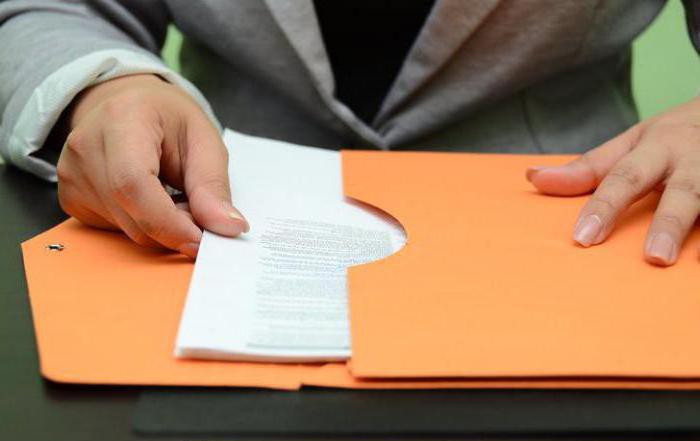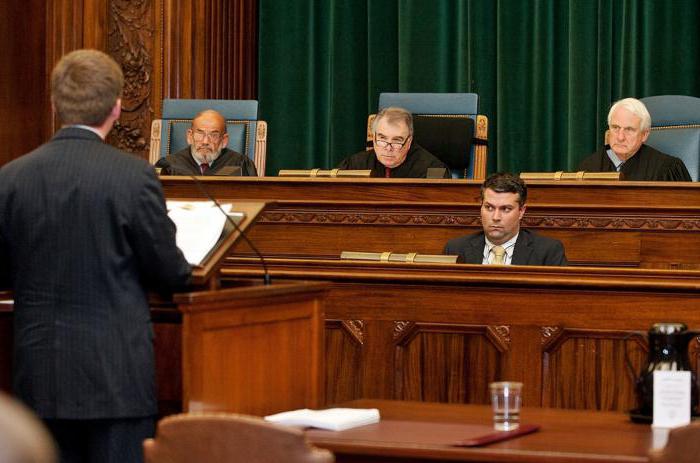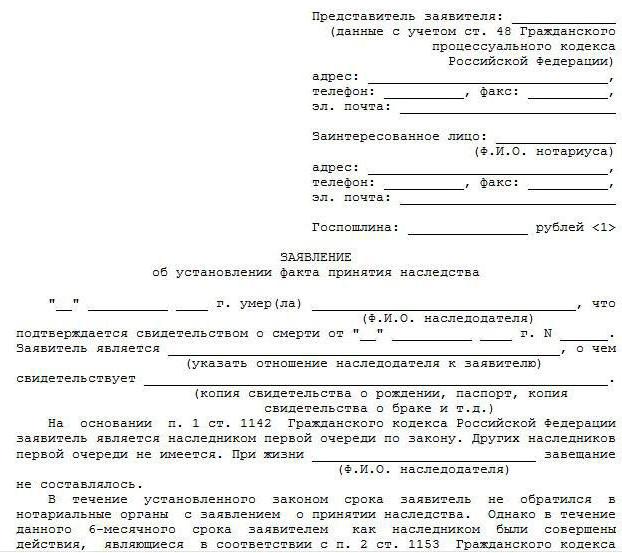The establishment of facts of legal significance is one of the most common categories of cases. Applications are submitted to the court by both citizens and organizations. The review and decision-making procedure has its own specifics.
The popularity of fact-finding through the courts
The law provides a list of ways to protect your rights and interests. In the event of a dispute, it became habitual to go to court. However, the dispute may not be, but the person or organization is not able to exercise their rights due to lack of documents.

The reasons for this are the negligence of officials or the targeted destruction of archival funds.
The establishment of facts of legal significance is a way to solve the problem through a judicial procedure, when there is no other way. What cases does this apply to? Any, from registration of a pension, inheritance and property rights, etc.
Legal facts are circumstances, conditions, actions, the presence of which leads to the emergence or change of rights. Consider an example. The citizen actually accepted the inheritance, but did not contact the notary in due time, and the documents he had were not enough. One road remains - the court. Upon receipt of a court decision, it will be possible to formalize the inheritance.
Legislative regulation
What regulates the establishment of facts of legal significance? GIC main document. In this procedure, chapter 28, art. Art. 264-268. They describe:
- list of facts confirmed by this procedure;
- the conditions under which the application is accepted by the court;
- jurisdiction rules (when, and to which court to apply);
- sample application requirements;
- status of the decision made by the court.
How does the special production and establishment of facts of legal significance relate to this? The second is part of the first. It's just that they are used to looking at this category as something completely independent. And, indeed, there are features unique to the fact-finding procedure.

The Code of Civil Procedure is not the only document regulating these issues; the other normative legal acts should be taken into account so that the materials submitted to the court can be valid.
For example, does the organization or body have the right to provide relevant information or certificates.
To a certain extent, court decisions are also regulated by judicial practice. Judges have a specific approach to resolving a particular type of case.
Having studied the court decisions posted on the Internet, it is possible to note what documents are required in a particular case, and what draws the most attention. Each region has its own specifics.
Periodically, courts of all levels organize a study of the practice of resolving cases, in particular special proceedings.
Proper drafting of a statement
What requirements must be met by a statement in order to open proceedings on the establishment of facts of legal significance?
- name of the court (in the first instance, fact-finding cases are considered by district courts);
- information about the applicant (F. I. O., address, postcode, phone number;
- information about the person concerned (name of the organization, its address, phone number);
- circumstances that forced the applicant to go to court;
- the reasons why he needs to establish a legal fact;
- evidence of an appeal to a competent authority;
- list of attached documents;
- date of application, signature;
- attached receipt confirming payment of state duty - 300 rubles.
The number of copies of applications and documents is determined by the number of participants in the case, and one set is put for the court.

Where can I find a sample legal fact statement? As a rule, a blank form is offered in the court office or on its website. Inexperienced citizen in legal matters this does not make it easier. In addition, you need to choose a sample that will definitely fit his problem.
The presence of a dispute
The specific nature of the proceedings in these cases implies the absence of a dispute between the applicant and other persons. If it does, the judge refuses to review the materials.
So, for example, the girl who gave birth to a child wants to obtain child support. The man refuses to admit that the child is born of him and does not want to pay child support.
In this case, an application to establish a legal fact of legal significance, with the attached documents, will be returned to the addressee. So it is with the facts of ownership and use of real estate. If there are persons indicating that the applicant does not have such rights, the application is not considered.
In both cases, a claim is required. In the first suit, you must ask:
- establish the fact of paternity of the defendant;
- collect child support in the amount (the plaintiff prescribes the desired amount).
The second lawsuit contains one request:
- recognize the right to own or use real estate for the applicant.
The fact of ownership is established during the trial and is an intermediate moment on the way to solving the problem.
The establishment of the fact of paternity in its purest form is applied when the alleged father of the child can neither refute nor agree with this fact - when he died.
If, in addition to clarifying the facts, there is a need to resolve the dispute, the case is considered in the proceedings.
Details on some points of the statement
Circumstances leading to appeal to the court - a description of the situation in which the applicant found himself. This is an appeal to a notary public and to the bodies of the pension fund, etc. Further, the applicants refer either to an oral or written explanation of the need for a trial.

What reasons require establishing facts of legal significance? What kind of right or interest can the applicant protect with a court decision in hand? In particular, the right to retirement, the right to inheritance, the right to housing, including the right of ownership.
Evidence of appeal to the authority. This includes answers from archives, institutions, state or municipal authorities, and other organizations.
A response or a letter from the person concerned is required, in the case of a notary public - a decision to refuse to perform a notarial act. Less corrosive judges ask at least a letter from a notary or wait for his reaction to a court call.
If the organization does not give a written answer, it is necessary to at least prove the fact of sending the request. A copy of the application with a note of acceptance at the office or receipts and notifications from the postal service on delivery of the list of papers enclosed in a letter is enough.
The absence of relevant documents in the case file will lead to the fact that the application will be returned. Without them, from the point of view of procedural law, the establishment of facts of legal significance is impossible.
The reason is that the court does not replace other authorities or institutions. Although the judicial act makes up for the lack of the required document, it does not replace it. The intervention of the court is exceptional.
Features of the review procedure
An application for the establishment of a fact of legal significance shall be considered in a general manner. The judge checks the correctness of its compilation, if there are any obstacles to the opening of the proceedings.Interested parties are sent copies of the decision to open a case, copies of materials and a summons. A copy of the determination and the summons are sent to the applicant.
If necessary, clarifications are made or questions are asked by the court. The procedure for establishing facts of legal significance gives the court the right to demand evidence on its own initiative. In lawsuit proceedings, this freedom is seriously limited.

At the same time, the applicant remains obliged to substantiate his position with evidence, arguments, explanations.
The court considers the case on the basis of any documents related to the situation, the law does not create any restrictions.
The call of witnesses is organized in a general manner. The applicant, or his representative, first reports what the witness can tell, after which the judge decides on his challenge.
The judge is the only official who has the right to substantiate his findings on the testimonies of witnesses and documents that are indirectly related. This is the peculiarity of his activity, everyone else is obliged to act on the basis of securities collected according to a clear list.
The decision is made out by definition. A month is given for appeal.
What problems do applicants face?
Who are the participants in the lawsuit? Citizens having problems with paperwork. The bulk of the cases are not particularly complicated and are resolved within one meeting with quality preparation by the parties and the court.
But there are cases in which the interests of not one but several individuals are represented.
The court is always obliged to find out whether the filed application affects the interests of others, and not. For example, a statement of acceptance of an inheritance. It is advisable to submit a request to the notary's office, whether someone else is claiming the inheritance.

The establishment by the court of facts of legal significance becomes a problem when the judge returns the application, citing the existence of a dispute. Criteria have still not been worked out to the end to help see if there is a dispute about the law, the law is not clearly formulated.
A negative decision is drawn up by the ruling on the return of materials to the applicant.
Code of Civil Procedure gives the right, after returning the materials, to apply to the court on the same grounds. The judicial establishment of facts of legal significance gives an unlimited number of attempts to appeal.
However, the case may go to the same judge who will make the same decision as the previous time. If the refusal is unlawful, it is better to file an appeal than to succumb to the judge’s entreaties and agree with his actions.
Officials do not like citizens who fundamentally assert their rights, but reckon with them more than with the rest of the mass of applicants and complainants.
Cases that the law does not indicate
The formulated norm of the law does not have a closed list of grounds for submitting applications. What cases of establishing facts of legal significance that are not prescribed by law are considered by the courts?

For example, statements about the fact of residence in a specified period of time or in a specified place. Many citizens do not have registration at the place of actual residence or are registered elsewhere. The confusion with registration creates serious difficulties in many issues, despite the obligation of officials to provide services at the actual location of the person.
For example, pensioners who have been living for at least 5 years in Moscow are eligible to receive a regional pension supplement.
Serious judicial practice has accumulated with the establishment of a fact of legal significance in the Crimea in connection with the proof of permanent residence in its territory at the time of the events of 2014.
How do they prove the fact of living?
- copies of work books;
- certificates from the clinic about registration;
- service agreement;
- testimony of witnesses;
- certificates from social security authorities.
What other matters arise in practice? Statements of fact:
- receiving a salary;
- political repression;
- participation in the liquidation of the Chernobyl accident.
There are many examples, which are not limited to the listed examples.
Judicial Act Status
It fills a gap in the chain of documents giving certain rights. The need arises from inaccuracies. For example, the order to transfer rights to the land plot made a mistake in spelling the name or surname of the owner, which creates obstacles to the realization of land rights.
The correct variant is the spelling of the last name and first name in the passport and birth certificate.
If the authority issuing the administrative act no longer exists, then there is no formal way to correct the error. Authorities organized to replace others are not their successors. The issuance of a new document to replace the old one is impossible here.
It is imperative that the court establish that the document belongs to the applicant. This procedure does not allow ascertaining the ownership of a military ID, passport, certificate issued by the authorities of the Civil Registry Office.
From the above example it is clear that a document from the court is required to be received for further presentation to the authorities on which the decision of the applicant’s question depends.
It makes sense to provide a court decision only after its entry into force, when the deadline for appeal passes. The office put a special seal and make an inscription specifying the date of entry into force of the judicial act.
Do I go to court myself
With whose help do they draw up a statement on the establishment of facts of legal significance? The sample is provided by either the court or the Internet. However, like any other work, the preparation of a document requires knowledge and skills. Therefore, it is better to contact a lawyer. At least at the stage of collecting documents to avoid mistakes. In addition, the lawyer gives advice on how to behave in court and what to say.